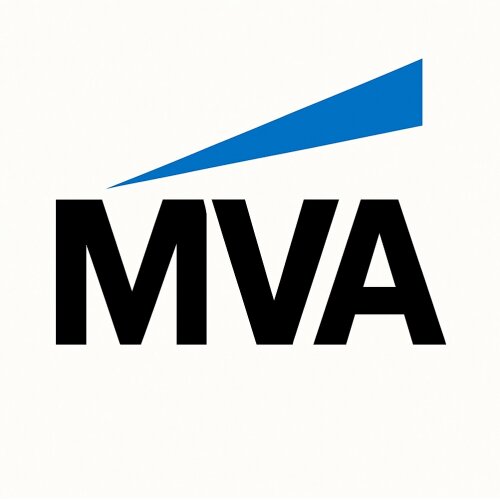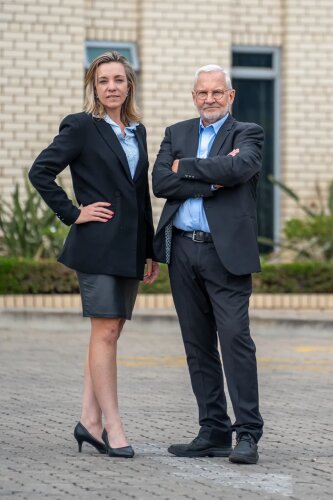Best Collaborative Law Lawyers in Pretoria
Share your needs with us, get contacted by law firms.
Free. Takes 2 min.
Free Guide to Hiring a Family Lawyer
List of the best lawyers in Pretoria, South Africa
About Collaborative Law in Pretoria, South Africa
Collaborative Law is a legal approach gaining traction in Pretoria, South Africa, for resolving disputes, particularly in family law. This method is designed to offer an alternative to traditional courtroom litigation, emphasizing cooperation and negotiation among parties. Typical scenarios include divorce, child custody arrangements, and property division, where the parties involved wish to reach a mutually agreeable settlement without the adversarial nature of court proceedings. Lawyers trained in collaborative law assist clients in open, honest dialogue and provide guidance to reach amicable solutions.
Why You May Need a Lawyer
There are several situations where you might require legal assistance in Collaborative Law:
- Divorce: The end of a marriage can be emotionally and financially draining. Collaborative law aims to ease this process by promoting negotiations outside the courtroom.
- Child Custody and Support: Deciding on the custody of children and the financial support involved can be resolved more amicably through collaborative discussions.
- Property and Asset Division: A lawyer can help ensure fair division of shared property and assets in a collaborative manner.
- Spousal Support: Negotiating terms for alimony or maintenance can be less contentious with the help of a collaborative law attorney.
- Business Disputes: For commercial relationships, collaborative law can assist in resolving conflicts without disturbing business operations.
Local Laws Overview
In Pretoria, Collaborative Law operates within the broader framework of South African family law. Key aspects include:
- Matrimonial Property Act: Governs the division of assets upon divorce, recognizing different marital regimes such as in community of property and out of community of property.
- Children's Act: This act focuses on ensuring the best interests of the child, guiding custody and maintenance agreements.
- Dispute Resolution Framework: Encourages mediation and collaborative negotiations as preferred forms of resolving family disputes over litigation.
Frequently Asked Questions
What is Collaborative Law?
Collaborative Law is an alternative dispute resolution process where both parties and their lawyers commit to resolving disputes amicably without going to court.
How does Collaborative Law differ from mediation?
While both prioritize negotiation and settlement, collaborative law involves each party having their own lawyer present throughout the process, whereas mediation involves a neutral third-party mediator.
What happens if Collaborative Law negotiations break down?
If an agreement cannot be reached, the collaborative process ends, and both parties must hire new attorneys to proceed with litigation.
Is Collaborative Law legally binding?
Yes, once the parties reach an agreement, it is documented and presented to a court to be made an enforceable order.
Can Collaborative Law be used for child custody cases?
Absolutely. It's often used to establish child custody arrangements in a less adversarial environment focused on the child's best interests.
How long does Collaborative Law process take?
The timeline varies depending on the complexity of the case and the parties' willingness to negotiate, but it is generally faster than going to court.
What are the costs involved in Collaborative Law?
Costs can vary, but overall, collaborative law tends to be less expensive than full litigation due to shorter timelines and reduced court fees.
Do both parties need a lawyer in Collaborative Law?
Yes, both parties must have their own collaboratively trained lawyer to ensure fair representation and guidance.
What are the main advantages of Collaborative Law?
Key benefits include confidentiality, control over outcomes, reduced stress, and preserving relationships, particularly when children are involved.
Can Collaborative Law agreements be modified?
Agreements reached through collaborative law can be modified if both parties consent to the changes, particularly as circumstances evolve.
Additional Resources
If you need more information or support regarding Collaborative Law in Pretoria, consider the following resources:
- Law Society of South Africa: Offers resources and referrals for certified collaborative law practitioners.
- Family Mediators Association of the Cape: Provides guidance on non-adversarial methods of resolving family disputes.
- Department of Justice and Constitutional Development: Offers insights into family law and child custody legislation.
Next Steps
If you're considering Collaborative Law, start by consulting a lawyer who specializes in this field. Ask about their experience and approach to collaborative cases to ensure they align with your goals. You can visit law firm websites, schedule consultations, or reach out to the local bar association for recommendations. Prepare a list of questions and concerns you have about your specific situation to ensure a productive initial meeting. Remember, taking this step can help preserve relationships and find amicable solutions that work for all parties involved.
Lawzana helps you find the best lawyers and law firms in Pretoria through a curated and pre-screened list of qualified legal professionals. Our platform offers rankings and detailed profiles of attorneys and law firms, allowing you to compare based on practice areas, including Collaborative Law, experience, and client feedback.
Each profile includes a description of the firm's areas of practice, client reviews, team members and partners, year of establishment, spoken languages, office locations, contact information, social media presence, and any published articles or resources. Most firms on our platform speak English and are experienced in both local and international legal matters.
Get a quote from top-rated law firms in Pretoria, South Africa — quickly, securely, and without unnecessary hassle.
Disclaimer:
The information provided on this page is for general informational purposes only and does not constitute legal advice. While we strive to ensure the accuracy and relevance of the content, legal information may change over time, and interpretations of the law can vary. You should always consult with a qualified legal professional for advice specific to your situation.
We disclaim all liability for actions taken or not taken based on the content of this page. If you believe any information is incorrect or outdated, please contact us, and we will review and update it where appropriate.















